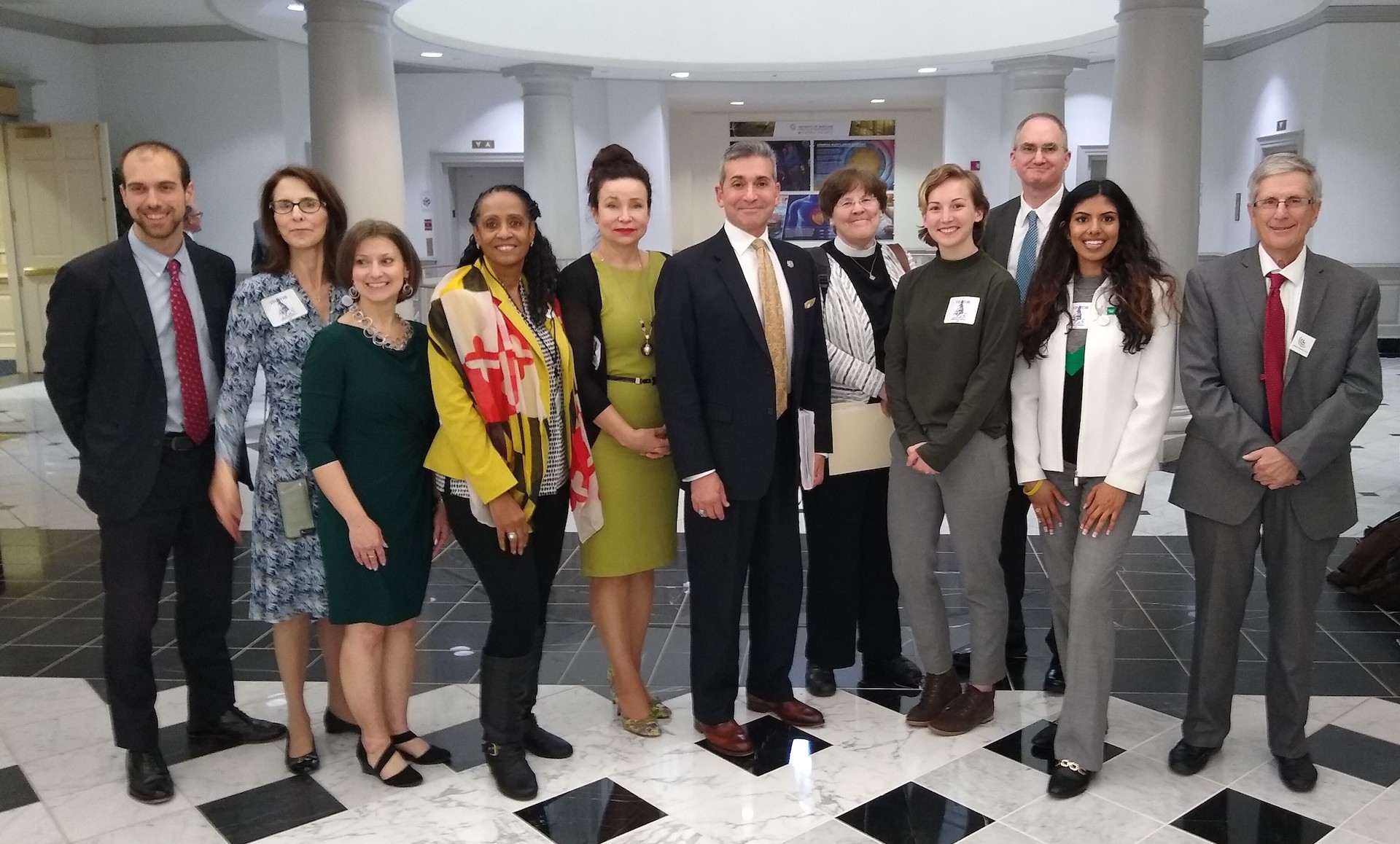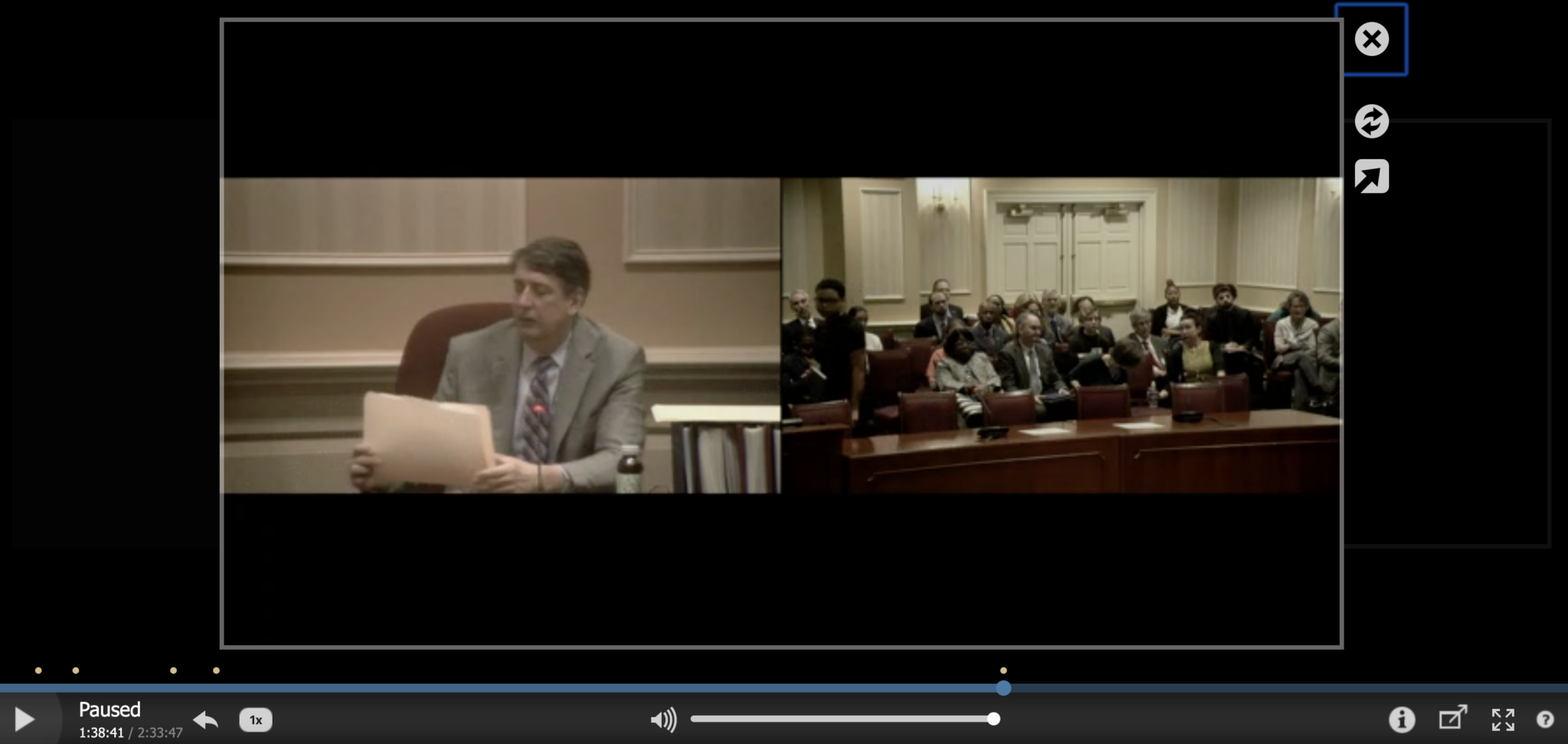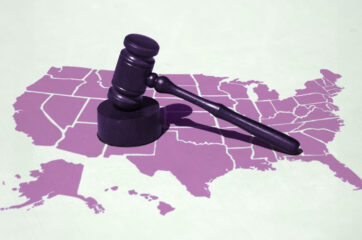Over two days, dozens of expert witnesses gathered before the Maryland General Assembly to support legislation to put a price on carbon pollution. The panelists represented a cross section of the bill’s wide support, and included environmental, religious, labor, equity, research and education organizations. All testified in favor of the Climate Crisis and Education Act (CCEA), which would require the fossil fuel industry to begin paying for Maryland’s transition to a sustainable, renewable energy economy, while simultaneously helping to fund the Kirwan Commission’s education system recommendations.
The Bill
If passed, the Climate Crisis and Education Act (CCEA) (SB912/HB1543) would be the first significant, standalone carbon pricing bill to go into effect in Maryland.
CCEA has generated significant interest in the Maryland General Assembly this session, attracting 68 co-sponsors in the House and 8 in the Senate, more than any previous carbon pricing bill in the state. A large amount of its support is driven by the bill’s ability to fund the Kirwan Commission’s educational recommendations. In a report released in 2018, the commission found that funding for Maryland public schools was severely lacking, and since then political pressure has mounted on policymakers to find funding streams to plug the gaps.
Moreover, CCEA would set the state on a path towards addressing its special vulnerability to the effects of the climate crisis in a powerful and innovative way. Among other things the bill would:
- Establish a Climate Crisis Council (C3) to develop an energy policy that reduces statewide greenhouse gas emissions 70% by 2030 and 100% by 2040, with net negative emissions achieved after 2040 (using 2006 as the baseline emissions year).
- The C3’s plan must achieve these goals equitably, protecting low- and moderate-income households, as well as energy-intensive, trade-exposed businesses, and help legacy fossil fuel workers transition to a clean economy.
- Direct $350 million each year from revenue raised, towards improvements to the state’s educational system identified by the Kirwan Initiative, including funding for teachers’ salaries, additional counseling and career preparation, and stronger health programs.
- Establish a gradually escalating fossil fuel fee — starting at $15/ton CO2 for non-transportation sources, and $10/ton CO2 for transportation sources — to fund the goals above, while creating a Clean Energy Infrastructure Fund to pay for programs like electric vehicles (EV) charging stations, infrastructure resilience projects, solar panel installations, and carbon sequestration. (The fossil fuel fee measure would include a no pass-through provision that prohibits fossil fuel companies from passing this cost on to Maryland citizens.)
- Institute a gradually escalating registration fee on new cars and light trucks that are high-polluting vehicles, revenues from which could be used to provide rebates to EV purchasers and for EV charging infrastructure build-outs.
The Hearings
The hearings began on Wednesday (3/11) before the Senate Budget and Taxation Committee, and continued on Thursday (3/12) in the House before the Economic Matters Committee.
Testimony for the bill was kicked off by Senate sponsor Benjamin Kramer (Montgomery County) and House sponsor David Fraser-Hidalgo (Montgomery County).
They were then followed by George Washington University Law Professor Larry Liebesman and Climate and Economics Vice President at World Research Institute Helen Mountfort. In his testimony Liebesman said, “Maryland faces severe risks from the climate crisis requiring urgent action now. The bill’s market-based solution will generate billions of dollars to help fund critical programs and provide an equitable transition to a clean energy economy.”
Also in support of carbon pricing was one of Maryland’s largest teachers unions, the Maryland State Education Association (MSEA). MSEA represents 75,000 educators and school employees who work in Maryland’s public schools, teaching and preparing our 896,837 students for careers and jobs of the future. Sean Johnson of MSEA said, “This bill is all about creating a better future for our kids and helping to make the Blueprint [i.e. education funding] a reality. That is why MSEA urges actions to fully fund the new formulas associated with the Blueprint for Maryland’s Future and supports a favorable report on Senate Bill 912.”
As were youth leaders including students from the University of Maryland at College Park and Morgan State University. Anjali Gulati, a junior economics major and president of Females United to Uplift, Reshape and Educate, at Morgan State University who testified said, “Baltimore City is disproportionately affected by climate change, especially people of color and people earning low incomes who cannot afford to move elsewhere. HBCU students, in a historically disenfranchised area, are the forefront of Baltimore’s fight against political greed at the expense of our physical health. The Climate Crisis and Education Act not only formalizes material solutions to reverse environmental injustice, but this plan has the necessary mechanism to generate the revenue to implement it.”
The Rev. Kathy Shahinian of the Episcopal Diocese of Maryland also testified in favor of the bill, saying, “as we are called by God to care for creation, we support policies that protect the natural resources that sustain all life on Earth.”
Members of the advocate community were also present including Chesapeake Climate Action Network’s (CCAN) Maryland Director Michael Tidwell, and Citizens’ Climate Lobby State-Level Carbon Pricing Coordinator Jamie DeMarco. “Our children and their children are looking back at us in this moment. Let them see that Maryland was one of the world’s leaders, ensuring they were handed a better quality of life than the one our parents and their parents handed to us,” said Michael Tidwell of CCAN.
Next Steps
Due to the current Coronavirus outbreak, the Maryland General Assembly has adjourned as of Wednesday (3/18). The legislature plans is to reconvene the last week of May for a special session during which they will consider pending legislation, including the carbon pricing bill.










